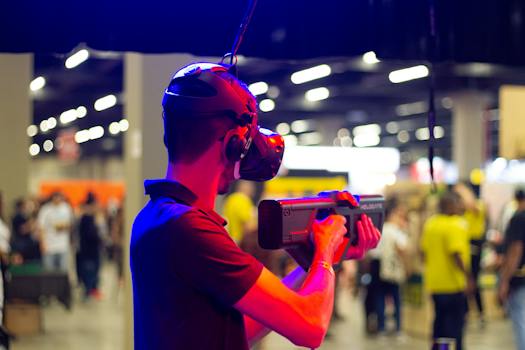-
Table of Contents
Unveiling the Illusion: Unraveling Subjective Perception
Introduction
In the realm of human experience, reality is often perceived as an objective and concrete entity. However, upon closer examination, it becomes evident that reality is a complex and multifaceted concept, heavily influenced by subjective perception. This essay aims to delve into the mirage of reality, exploring the ways in which our individual perspectives shape and distort our understanding of the world around us. By examining the role of perception, cognition, and cultural conditioning, we can begin to unravel the intricate web of subjectivity that colors our perception of reality. Through this exploration, we hope to gain a deeper understanding of the limitations and biases inherent in our perception, ultimately leading to a more nuanced and empathetic engagement with the diverse realities that exist within our shared human experience.
The Influence of Culture on Perceived Reality
The Influence of Culture on Perceived Reality
Perception is a fundamental aspect of human existence. It shapes our understanding of the world and influences our actions and decisions. However, what we perceive as reality is not an objective truth but rather a subjective interpretation of the information our senses provide. This subjective perception is heavily influenced by our cultural background, which shapes our beliefs, values, and expectations.
Culture plays a significant role in shaping our perception of reality. It provides us with a framework through which we interpret and make sense of the world around us. Different cultures have distinct ways of perceiving and understanding reality, leading to diverse perspectives and interpretations.
One way in which culture influences our perception of reality is through language. Language is not merely a tool for communication; it also shapes the way we think and perceive the world. Different languages have different words and concepts to describe the same phenomena, leading to variations in how people from different cultures perceive and understand reality. For example, the Inuit people have multiple words to describe different types of snow, reflecting their deep understanding and perception of this element in their environment.
Cultural norms and values also play a crucial role in shaping our perception of reality. Each culture has its own set of norms and values that guide behavior and shape social interactions. These norms and values influence what is considered acceptable or unacceptable, right or wrong, and shape our understanding of what is real and important. For instance, in some cultures, individualism is highly valued, and personal achievements are seen as indicators of success. In contrast, collectivist cultures prioritize group harmony and cooperation, valuing the collective over individual accomplishments. These cultural differences can lead to variations in how individuals perceive and prioritize different aspects of reality.
Moreover, cultural beliefs and worldviews influence our perception of reality. Each culture has its own set of beliefs, myths, and stories that provide explanations for the world and our place in it. These cultural narratives shape our understanding of reality and influence our perceptions. For example, in some indigenous cultures, nature is seen as a living entity with its own consciousness, while in Western cultures, nature is often perceived as a resource to be exploited. These different cultural beliefs lead to distinct perceptions and interactions with the natural world.
Cultural experiences and exposure also shape our perception of reality. Growing up in a particular culture exposes individuals to specific experiences, traditions, and ways of life. These experiences become ingrained in our perception of reality, shaping our expectations and influencing how we interpret and respond to different situations. For example, individuals from cultures with a collectivist orientation may prioritize group harmony and cooperation, while those from individualistic cultures may prioritize personal achievement and competition.
In conclusion, culture plays a significant role in shaping our perception of reality. It influences our language, norms, values, beliefs, and experiences, all of which contribute to our subjective interpretation of the world. Understanding the influence of culture on perceived reality is crucial for fostering intercultural understanding and empathy. By recognizing and appreciating the diversity of cultural perspectives, we can broaden our own understanding of reality and create a more inclusive and harmonious world.
Unraveling the Illusion: Understanding Cognitive Biases

Exploring the Mirage of Reality: Delving into Subjective Perception
Reality is often thought of as an objective truth, something that exists independently of our thoughts and beliefs. However, upon closer examination, it becomes clear that our perception of reality is far from objective. Our understanding of the world is heavily influenced by our subjective experiences, biases, and cognitive processes. In this article, we will unravel the illusion of reality and delve into the fascinating world of cognitive biases.
Cognitive biases are systematic errors in thinking that occur as a result of our brain’s attempt to simplify information processing. These biases can lead us to make irrational judgments and decisions, often without us even realizing it. One such bias is confirmation bias, which is the tendency to seek out information that confirms our preexisting beliefs while ignoring or dismissing contradictory evidence. This bias can create an echo chamber effect, where we surround ourselves with like-minded individuals and reinforce our own beliefs, further distorting our perception of reality.
Another common cognitive bias is the availability heuristic, which is the tendency to rely on readily available information when making judgments or decisions. This bias can lead us to overestimate the likelihood of events that are easily recalled from memory, such as vivid or recent experiences. For example, if we hear about a plane crash on the news, we may become more fearful of flying, even though statistically, flying is one of the safest modes of transportation.
The anchoring bias is yet another cognitive bias that influences our perception of reality. This bias occurs when we rely too heavily on the first piece of information we receive when making judgments or decisions. For example, if we are asked to estimate the price of a product and are given a high initial price, we are likely to overestimate its value. This bias can be exploited by marketers who use anchoring techniques to influence consumer behavior.
One particularly intriguing cognitive bias is the illusion of control. This bias leads us to believe that we have more control over events and outcomes than we actually do. We often attribute our successes to our own abilities and efforts, while blaming external factors for our failures. This bias can be seen in various aspects of life, from gambling to investing, where individuals may believe they have more control over the outcome than they actually do.
Understanding these cognitive biases is crucial for unraveling the illusion of reality. By recognizing and acknowledging our biases, we can strive to make more rational judgments and decisions. It is important to critically evaluate the information we receive, seek out diverse perspectives, and challenge our own beliefs. By doing so, we can gain a more accurate understanding of the world around us.
In conclusion, our perception of reality is far from objective. Our subjective experiences, biases, and cognitive processes heavily influence our understanding of the world. Cognitive biases, such as confirmation bias, availability heuristic, anchoring bias, and the illusion of control, shape our perception of reality and can lead us to make irrational judgments and decisions. By understanding and recognizing these biases, we can strive to overcome them and gain a more accurate understanding of the world. It is through this process of unraveling the illusion that we can truly explore the mirage of reality and delve into the depths of subjective perception.
The Power of Perspective: Examining the Role of Personal Experience
Exploring the Mirage of Reality: Delving into Subjective Perception
The Power of Perspective: Examining the Role of Personal Experience
Reality, as we perceive it, is a complex and multifaceted concept. It is shaped by our subjective perception, which is heavily influenced by our personal experiences. Our unique perspectives color the way we interpret the world around us, creating a diverse tapestry of realities. Understanding the power of perspective is crucial in comprehending the intricacies of human perception.
Personal experience plays a pivotal role in shaping our perception of reality. Each individual has a unique set of experiences that shape their understanding of the world. These experiences act as filters through which we interpret and make sense of the information we receive. For example, someone who has grown up in a war-torn country may have a different perception of safety and security compared to someone who has lived in a peaceful environment all their life. Our experiences shape our beliefs, values, and attitudes, which in turn influence our perception of reality.
Furthermore, our perception is not only influenced by our personal experiences but also by our cultural and societal backgrounds. Different cultures have distinct ways of perceiving and interpreting the world. For instance, in some cultures, eye contact is seen as a sign of respect and attentiveness, while in others, it may be considered rude or confrontational. These cultural nuances shape our perception of social interactions and influence our understanding of reality.
Moreover, our perception is not a static entity but is constantly evolving. As we gain new experiences and acquire new knowledge, our perception of reality can shift and change. This is evident in the way our beliefs and attitudes can transform over time. For example, someone who was once skeptical about climate change may change their perception after being exposed to scientific evidence and witnessing the effects firsthand. Our perception is malleable, and it is through the accumulation of new experiences that we can broaden our understanding of reality.
It is important to recognize that while our perception is subjective, it does not mean that it is entirely detached from reality. Our subjective perception is based on our interpretation of the information available to us. However, this interpretation is influenced by our biases, emotions, and preconceived notions. These factors can distort our perception and lead to a skewed understanding of reality. Therefore, it is crucial to approach our perception with a critical mindset, acknowledging the limitations and biases that may be present.
In conclusion, the power of perspective is a fundamental aspect of human perception. Our personal experiences, cultural backgrounds, and societal influences shape the way we interpret and understand reality. Our perception is not fixed but is constantly evolving as we gain new experiences and knowledge. However, it is important to approach our perception with a critical mindset, recognizing the biases and limitations that may be present. By delving into the intricacies of subjective perception, we can gain a deeper understanding of the mirage of reality that surrounds us.
Q&A
1. What is “Exploring the Mirage of Reality: Delving into Subjective Perception” about?
“Exploring the Mirage of Reality: Delving into Subjective Perception” is a book that examines the concept of subjective perception and its influence on our understanding of reality.
2. Who is the author of “Exploring the Mirage of Reality: Delving into Subjective Perception”?
The author of “Exploring the Mirage of Reality: Delving into Subjective Perception” is not specified in the question.
3. What is the main focus of “Exploring the Mirage of Reality: Delving into Subjective Perception”?
The main focus of “Exploring the Mirage of Reality: Delving into Subjective Perception” is to delve into the subjective nature of perception and its impact on our perception of reality.
Conclusion
In conclusion, exploring the mirage of reality and delving into subjective perception reveals the complex nature of human experience. Our perception of reality is influenced by various factors such as personal biases, cultural backgrounds, and individual experiences. This subjectivity highlights the limitations of our understanding and emphasizes the need for open-mindedness and empathy when engaging with others. By acknowledging the subjective nature of perception, we can strive for a more nuanced and inclusive understanding of reality.

